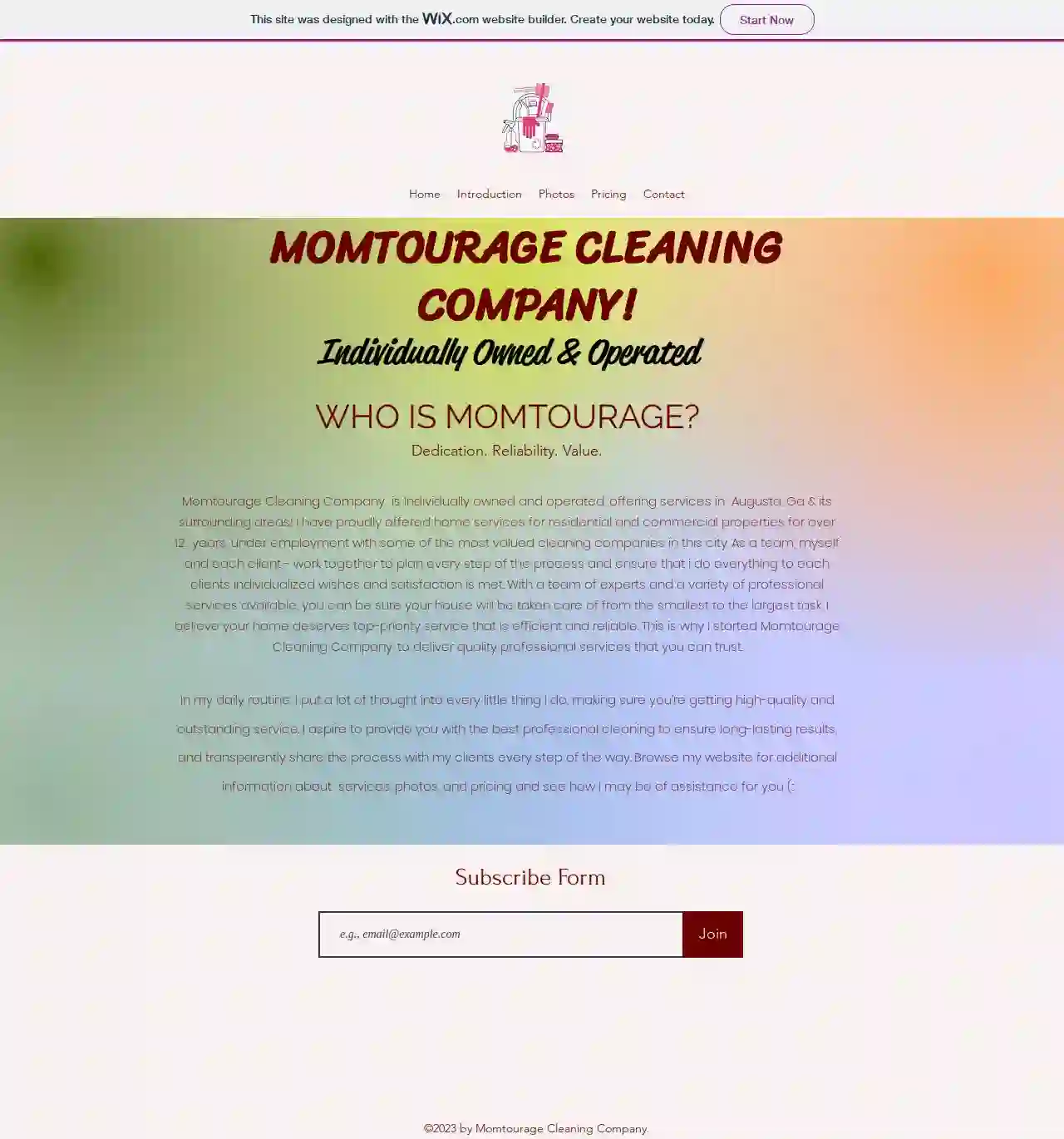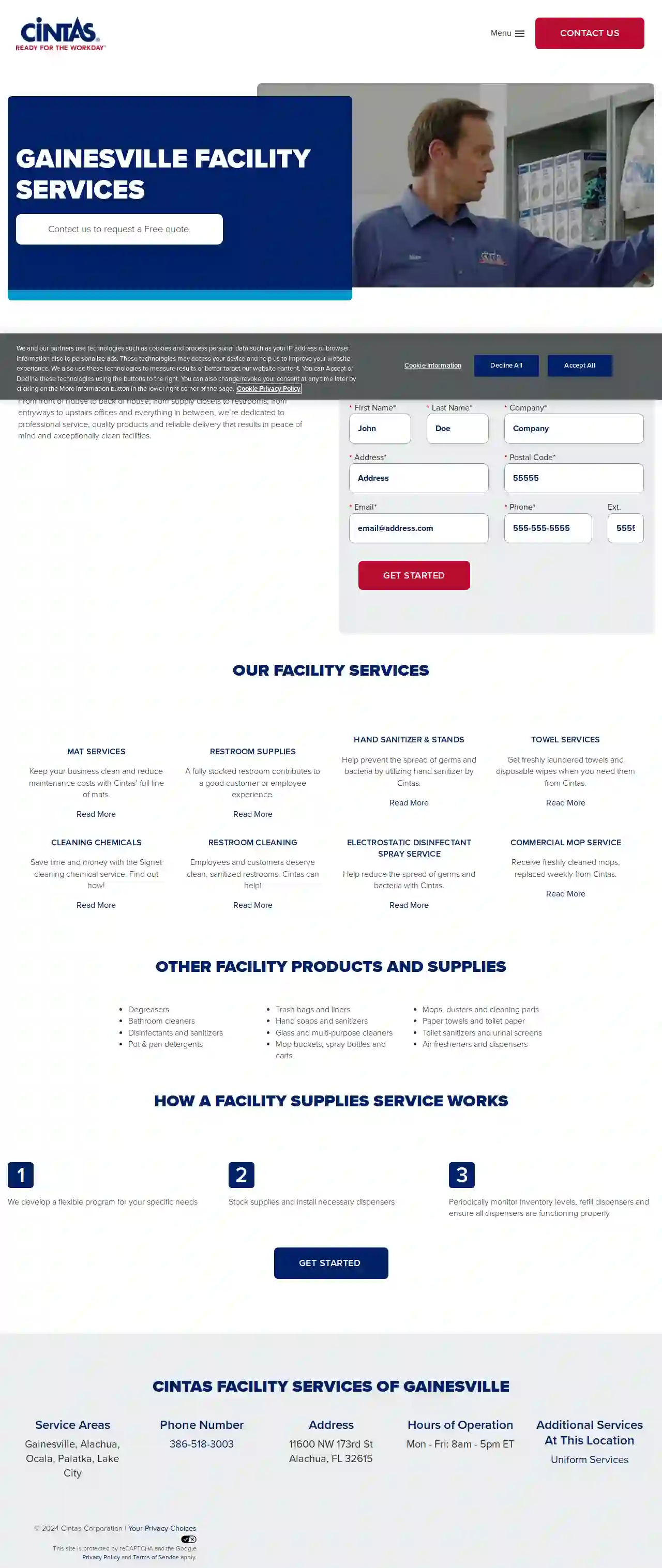Cleaning Services Clarkston
Best Cleaning Services in Clarkston
Receive up to 3 Apartment Cleaning quotes for your project today! Compare profiles, reviews, accreditations, portfolio, etc... and choose the best offer.
Service Needed
City or Town

Two Men & A Vacuum
4.235 reviewsColumbus, US- Services
- Why Us?
Get Quote
GDC Cleaning Services
51 reviewsGainesville, US- Services
- Why Us?
Get Quote
Momtourage Cleaning Company
52 reviewsAugusta, US- Services
- Why Us?
Get Quote
Cintas Facility Services
4.935 reviewsGainesville, US- Services
- Why Us?
Get Quote
Your Fresh Start Cleaning Service LLC
5127 reviewsColumbus, US- Services
- Why Us?
Get Quote
VAST Cleaning Solutions
518 reviewsSavannah, US- Services
- Why Us?
Get Quote
Bellklean Cleaning Services LLC
4.312 reviewsSavannah, US- Services
- Why Us?
Get Quote- Em
Empressv Solutions
55 reviewsMacon, US- Services
- Why Us?
Get Quote 
CleanNet of Atlanta
53 reviewsAtlanta, US- Services
- Why Us?
Get Quote
JAN-PRO Cleaning & Disinfecting in Savannah
3.88 reviewsSavannah, US- Services
- Why Us?
Get Quote
Over 60,241+ Cleaning Services on our platform
Our janitorial companies operate in Clarkston & surroundings!
CleaningMatch has curated and vetted Top Cleaning Companies in Clarkston. Find a top & reliable business today.
Frequently Asked Questions About Cleaning Services
Find answers to common questions about cleaning services and hiring cleaning companies in the USA.
- Online Directories: Use online directories like CleaningMatch to search for cleaning services in your area. Filter your search results by the specific cleaning type you need.
- Search Engines: Use search engines like Google to find cleaning services specializing in your desired cleaning type. For example, search for 'post-construction cleaning services near me' or 'eco-friendly cleaning services in [city name].'
- Ask for Referrals: Ask friends, family, neighbors, or colleagues if they know of any reputable cleaning services specializing in your desired cleaning type.
- Check Company Websites: Visit the websites of cleaning services in your area to see if they list the specific cleaning type you need among their services.
- Contact Companies Directly: Contact cleaning companies directly to inquire about their specialization in your desired cleaning type.
- Prepare the Windows: Remove dust and debris from windows using a brush, vacuum, or damp cloth.
- Cleaning Solution: Use a commercial glass cleaner or a homemade solution of equal parts water and vinegar.
- Spray and Wipe: Spray the cleaning solution onto the window, ensuring even coverage.
- Squeegee Technique: Use a squeegee to wipe the cleaner from top to bottom, overlapping each stroke by about an inch. Wipe the squeegee blade clean after each stroke.
- Dry Edges: Wipe the edges of the window with a clean, dry microfiber cloth to remove any remaining moisture.
- Experience: 'How long have you been in business, and what type of cleaning services do you specialize in?'
- Licensing and Insurance: 'Are you licensed, insured, and bonded? Can I see proof of coverage?'
- Background Checks: 'Do you conduct background checks on your employees?'
- Cleaning Supplies: 'Do you provide your own cleaning supplies and equipment, or should I provide them?'
- Cleaning Methods: 'What cleaning methods and products do you use?'
- References: 'Can you provide references from previous clients?'
- Scheduling and Availability: 'What days and times are you available for cleaning?'
- Pricing and Payment: 'What is your pricing structure, and what payment methods do you accept?'
- Cancellation Policy: 'What is your cancellation policy?'
- Satisfaction Guarantee: 'Do you offer a satisfaction guarantee? What happens if I'm not happy with the service?'
- Blot, don't rub: When treating fresh stains, blot with a clean cloth or paper towel to absorb as much of the stain as possible. Rubbing can spread the stain and damage carpet fibers.
- Club Soda: For spills like wine or coffee, pour club soda on the stain, let it fizz, then blot with a clean cloth. Repeat if needed.
- Vinegar Solution: Mix equal parts white vinegar and water, apply to the stain, and blot. Vinegar helps remove stains and odors.
- Baking Soda Paste: Make a paste with baking soda and water, apply to the stain, let it dry, then vacuum. Baking soda absorbs odors and lifts stains.
- Commercial Carpet Cleaner: : Use a commercial carpet cleaner according to the instructions. Choose a cleaner specifically designed for the type of stain you're dealing with.
- Professional Carpet Cleaning: For stubborn or deeply set stains, consider hiring a professional carpet cleaning service. They have specialized equipment and expertise in stain removal.
How do I find a cleaning service that specializes in [specific type of cleaning]?
If you need a cleaning service specializing in a particular type of cleaning, such as post-construction cleaning, window cleaning, or green cleaning, follow these steps:
By using these methods, you can find a qualified cleaning service that meets your specific cleaning needs.
By using these methods, you can find a qualified cleaning service that meets your specific cleaning needs.
What is the best way to clean windows without streaks?
Achieving streak-free windows requires the right technique and cleaning solutions. Follow these steps:
For best results, clean windows on a cloudy day or in the shade to prevent the cleaning solution from drying too quickly and leaving streaks.
For best results, clean windows on a cloudy day or in the shade to prevent the cleaning solution from drying too quickly and leaving streaks.
What should I ask a cleaning service before hiring them?
Before hiring a cleaning service, consider asking these questions to ensure they meet your requirements and expectations:
By asking these questions, you can assess their professionalism, reliability, and suitability for your cleaning needs.
By asking these questions, you can assess their professionalism, reliability, and suitability for your cleaning needs.
How can I get rid of tough stains on carpets?
Tough carpet stains can be challenging, but several methods can help:
Always test any cleaning solution on a small, inconspicuous area of the carpet first to ensure it doesn't cause discoloration or damage.
Always test any cleaning solution on a small, inconspicuous area of the carpet first to ensure it doesn't cause discoloration or damage.
How do I find a cleaning service that specializes in [specific type of cleaning]?
If you need a cleaning service specializing in a particular type of cleaning, such as post-construction cleaning, window cleaning, or green cleaning, follow these steps:
By using these methods, you can find a qualified cleaning service that meets your specific cleaning needs.
- Online Directories: Use online directories like CleaningMatch to search for cleaning services in your area. Filter your search results by the specific cleaning type you need.
- Search Engines: Use search engines like Google to find cleaning services specializing in your desired cleaning type. For example, search for 'post-construction cleaning services near me' or 'eco-friendly cleaning services in [city name].'
- Ask for Referrals: Ask friends, family, neighbors, or colleagues if they know of any reputable cleaning services specializing in your desired cleaning type.
- Check Company Websites: Visit the websites of cleaning services in your area to see if they list the specific cleaning type you need among their services.
- Contact Companies Directly: Contact cleaning companies directly to inquire about their specialization in your desired cleaning type.
By using these methods, you can find a qualified cleaning service that meets your specific cleaning needs.
What is the best way to clean windows without streaks?
Achieving streak-free windows requires the right technique and cleaning solutions. Follow these steps:
For best results, clean windows on a cloudy day or in the shade to prevent the cleaning solution from drying too quickly and leaving streaks.
- Prepare the Windows: Remove dust and debris from windows using a brush, vacuum, or damp cloth.
- Cleaning Solution: Use a commercial glass cleaner or a homemade solution of equal parts water and vinegar.
- Spray and Wipe: Spray the cleaning solution onto the window, ensuring even coverage.
- Squeegee Technique: Use a squeegee to wipe the cleaner from top to bottom, overlapping each stroke by about an inch. Wipe the squeegee blade clean after each stroke.
- Dry Edges: Wipe the edges of the window with a clean, dry microfiber cloth to remove any remaining moisture.
For best results, clean windows on a cloudy day or in the shade to prevent the cleaning solution from drying too quickly and leaving streaks.
What should I ask a cleaning service before hiring them?
Before hiring a cleaning service, consider asking these questions to ensure they meet your requirements and expectations:
By asking these questions, you can assess their professionalism, reliability, and suitability for your cleaning needs.
- Experience: 'How long have you been in business, and what type of cleaning services do you specialize in?'
- Licensing and Insurance: 'Are you licensed, insured, and bonded? Can I see proof of coverage?'
- Background Checks: 'Do you conduct background checks on your employees?'
- Cleaning Supplies: 'Do you provide your own cleaning supplies and equipment, or should I provide them?'
- Cleaning Methods: 'What cleaning methods and products do you use?'
- References: 'Can you provide references from previous clients?'
- Scheduling and Availability: 'What days and times are you available for cleaning?'
- Pricing and Payment: 'What is your pricing structure, and what payment methods do you accept?'
- Cancellation Policy: 'What is your cancellation policy?'
- Satisfaction Guarantee: 'Do you offer a satisfaction guarantee? What happens if I'm not happy with the service?'
By asking these questions, you can assess their professionalism, reliability, and suitability for your cleaning needs.
How can I get rid of tough stains on carpets?
Tough carpet stains can be challenging, but several methods can help:
Always test any cleaning solution on a small, inconspicuous area of the carpet first to ensure it doesn't cause discoloration or damage.
- Blot, don't rub: When treating fresh stains, blot with a clean cloth or paper towel to absorb as much of the stain as possible. Rubbing can spread the stain and damage carpet fibers.
- Club Soda: For spills like wine or coffee, pour club soda on the stain, let it fizz, then blot with a clean cloth. Repeat if needed.
- Vinegar Solution: Mix equal parts white vinegar and water, apply to the stain, and blot. Vinegar helps remove stains and odors.
- Baking Soda Paste: Make a paste with baking soda and water, apply to the stain, let it dry, then vacuum. Baking soda absorbs odors and lifts stains.
- Commercial Carpet Cleaner: : Use a commercial carpet cleaner according to the instructions. Choose a cleaner specifically designed for the type of stain you're dealing with.
- Professional Carpet Cleaning: For stubborn or deeply set stains, consider hiring a professional carpet cleaning service. They have specialized equipment and expertise in stain removal.
Always test any cleaning solution on a small, inconspicuous area of the carpet first to ensure it doesn't cause discoloration or damage.